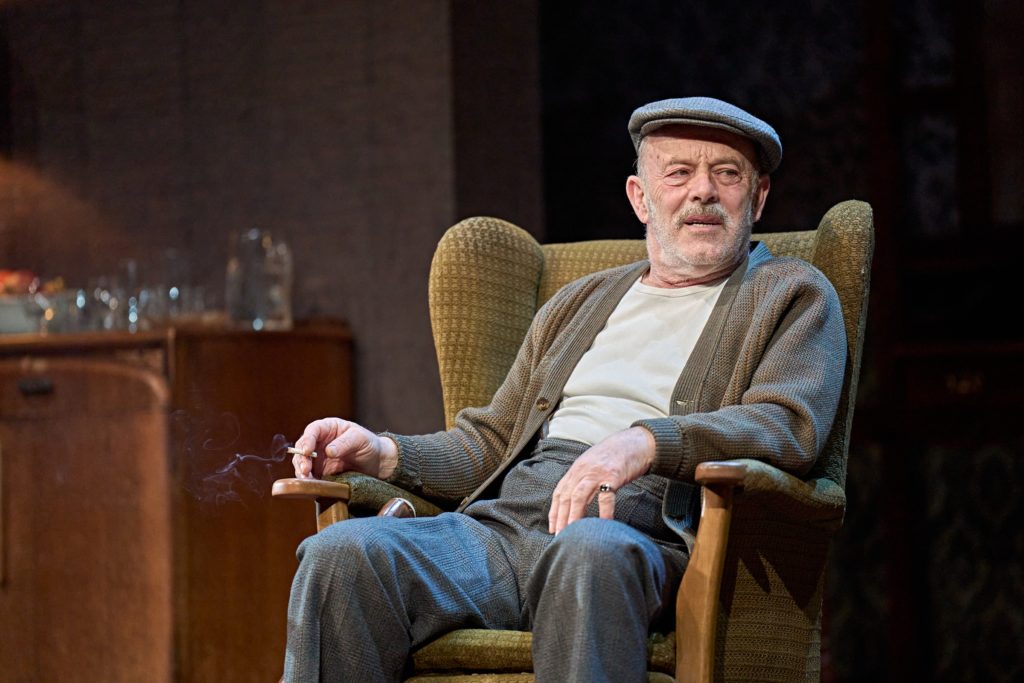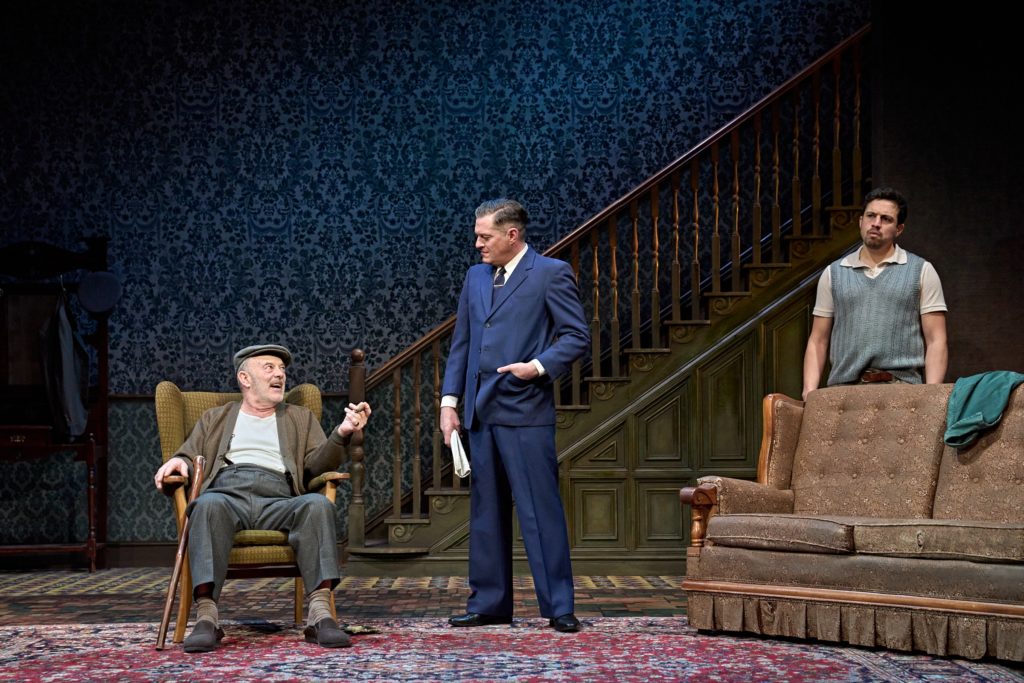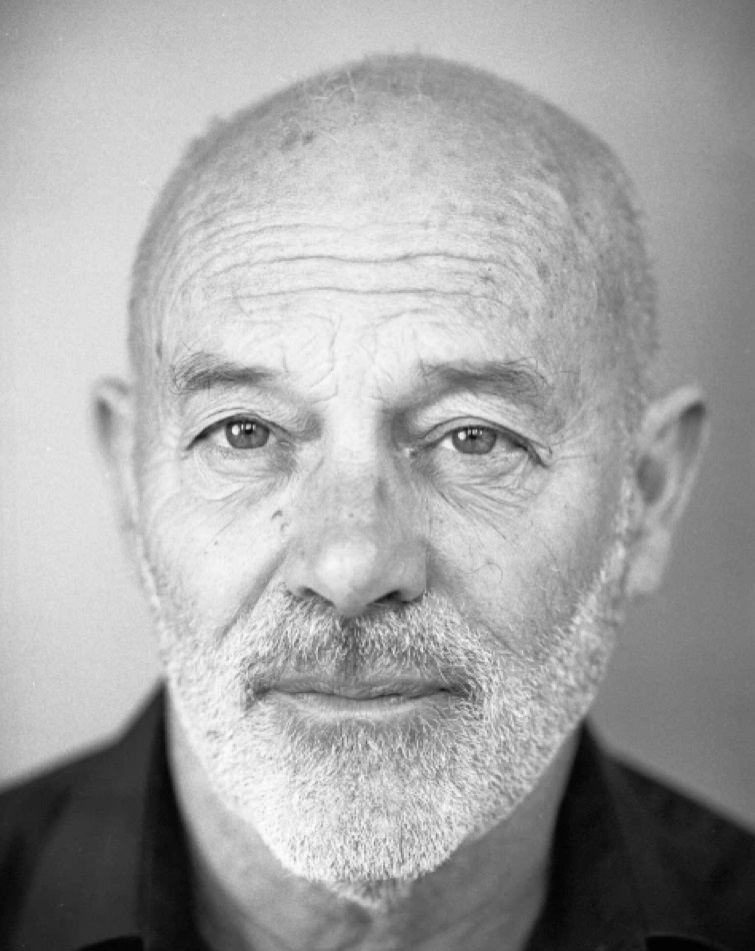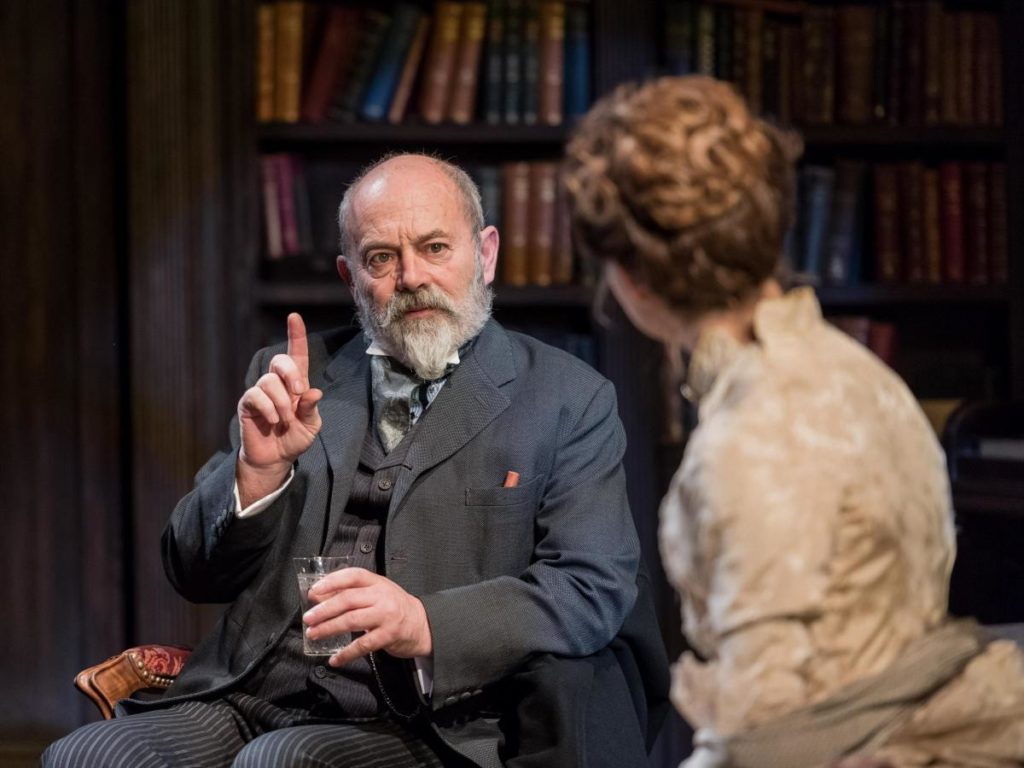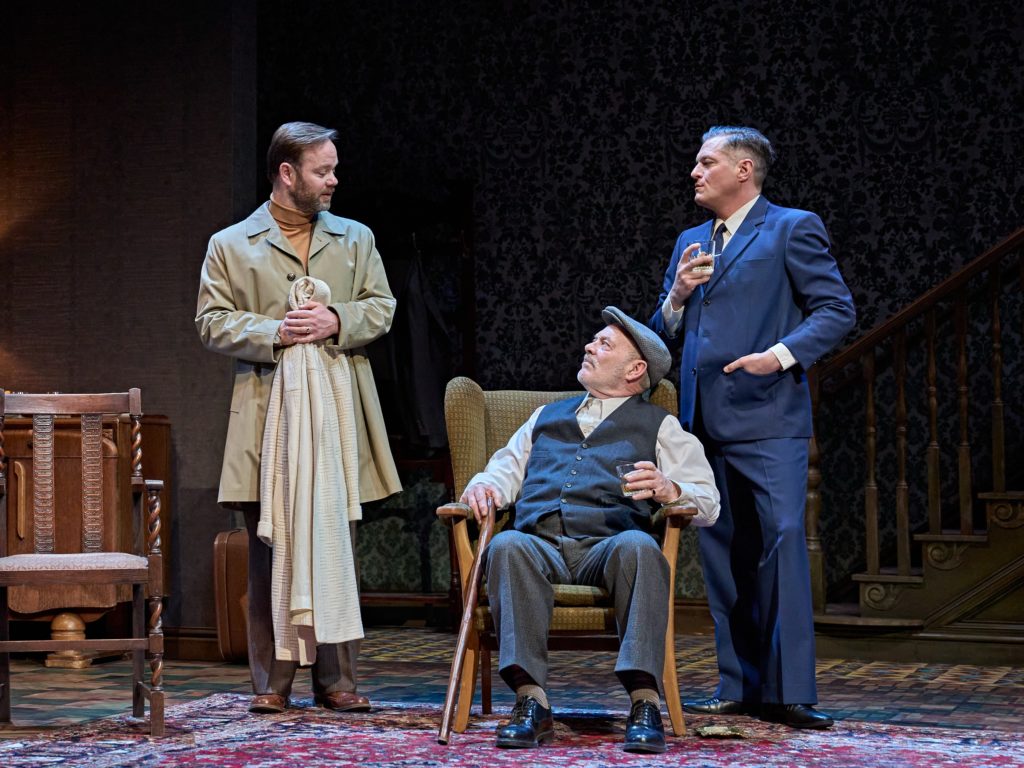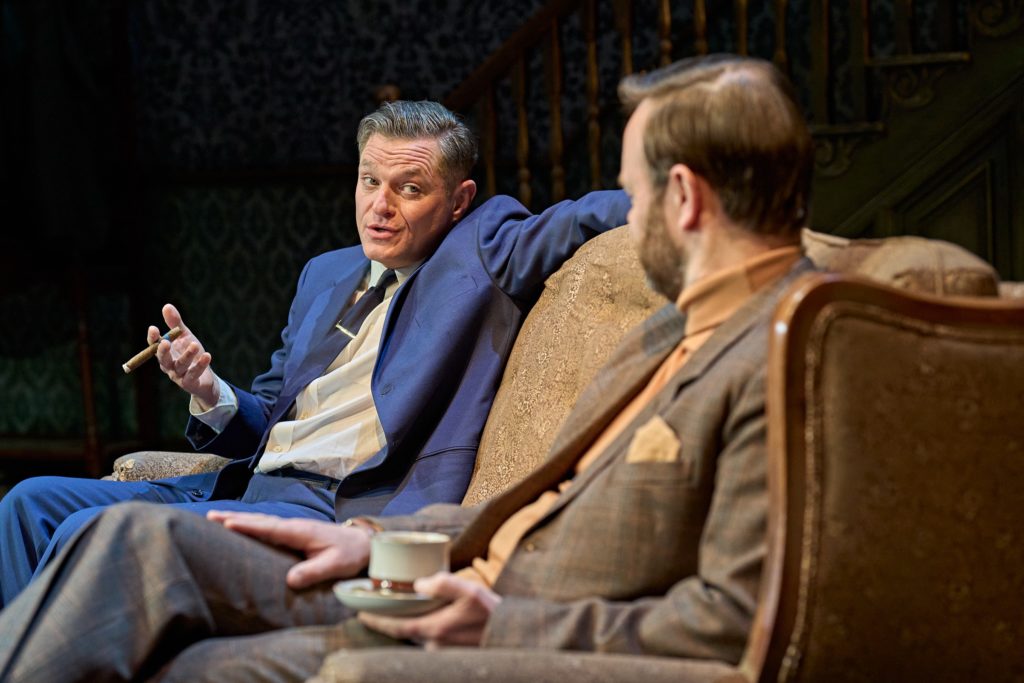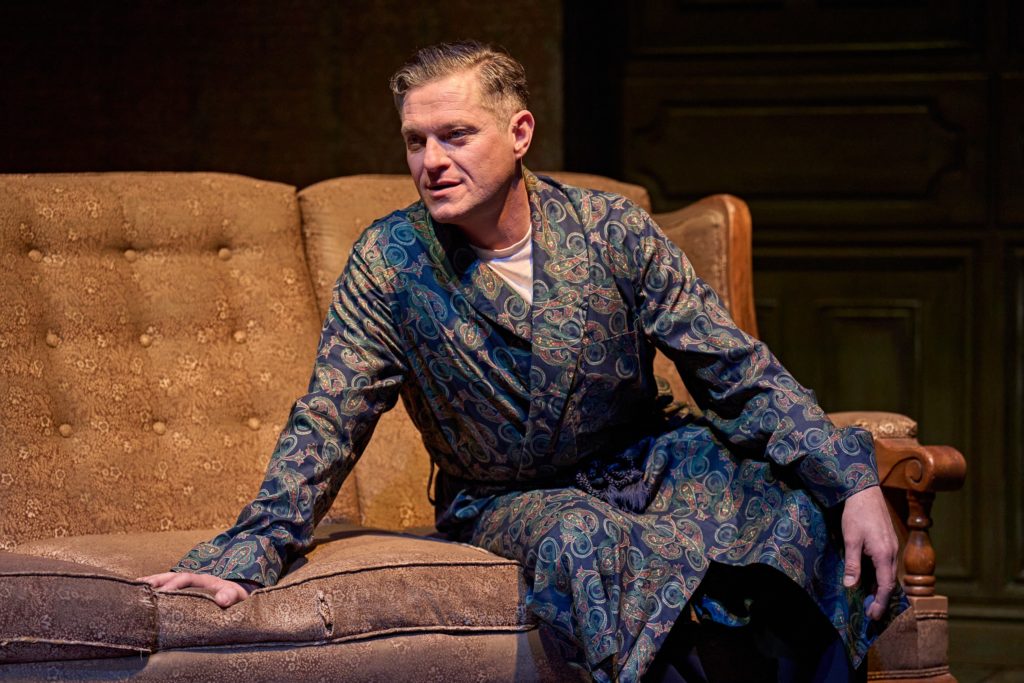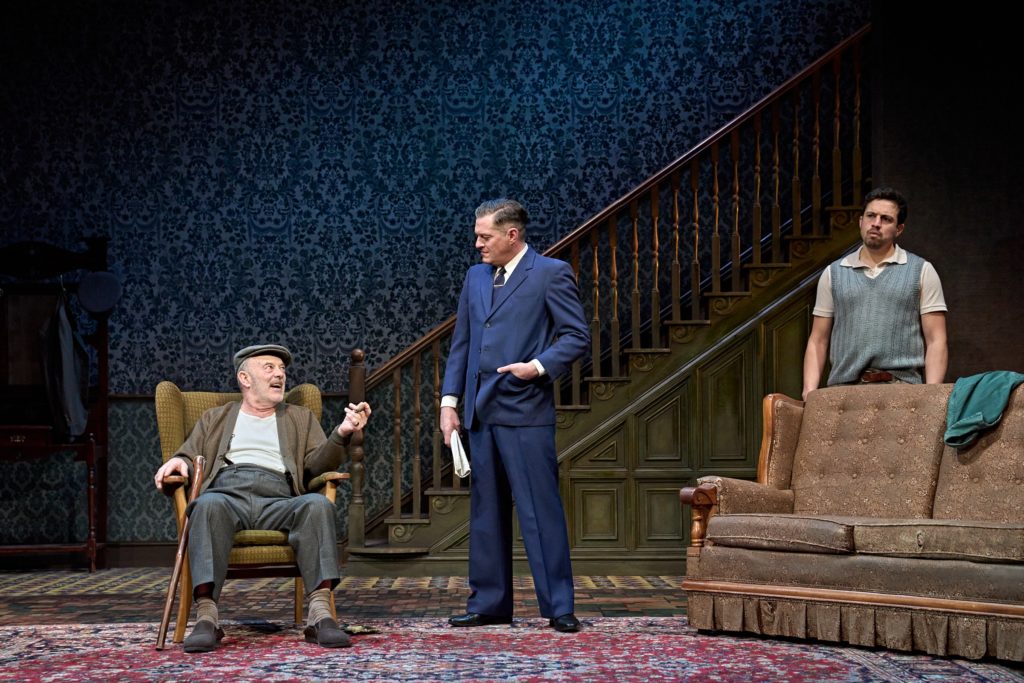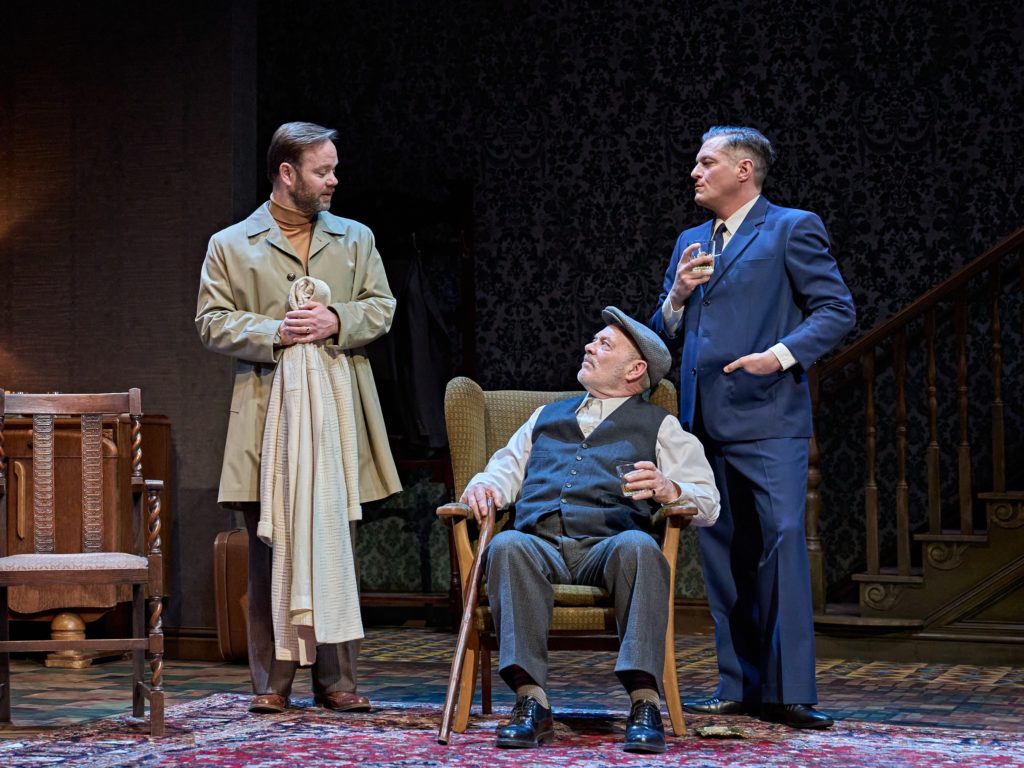
Theatre Royal Bath presents The Homecoming, York Theatre Royal, 7.30pm, tonight; 2.30pm and 7.30pm, Saturday. Box office: 01904 623568 or yorktheatreroyal.co.uk
KEITH Allen, actor and comedian, reckons Jamie Glover’s revival of Harold Pinter’s bewildering 1965 psychodrama is the funniest of his three acquaintances with The Homecoming, spread over 25 years.
That assessment just adds to the puzzle emanating from Pinter’s fantasist family wars. Funny, you say, Keith? Well, not as in funny ha-ha, but darkly, bitterly humorous in its jaw-dropping mind games, sexual power plays and gruff misogyny, even more uncomfortable to observe in this age of #MeToo and heightened gender politics.
As a programme note forewarns, Pinter gave short shrift to “any director or actor who dared to ask him what a line or a scene might actually mean”. You may well be on the side of those befuddled actors and directors, feeling cast adrift on a sea of ambiguity, unsure of what is going on, maybe incredulous too, and yet somehow still fascinated by the shenanigans unfolding.
It turns out Noel Coward was a fan, writing to Pinter after experiencing the convention-smashing, fragmented, disturbing The Homecoming. “You cheerfully break every rule of the theatre that I was brought up to believe in, except the cardinal one of never boring for a split-second,” The Master voiced.
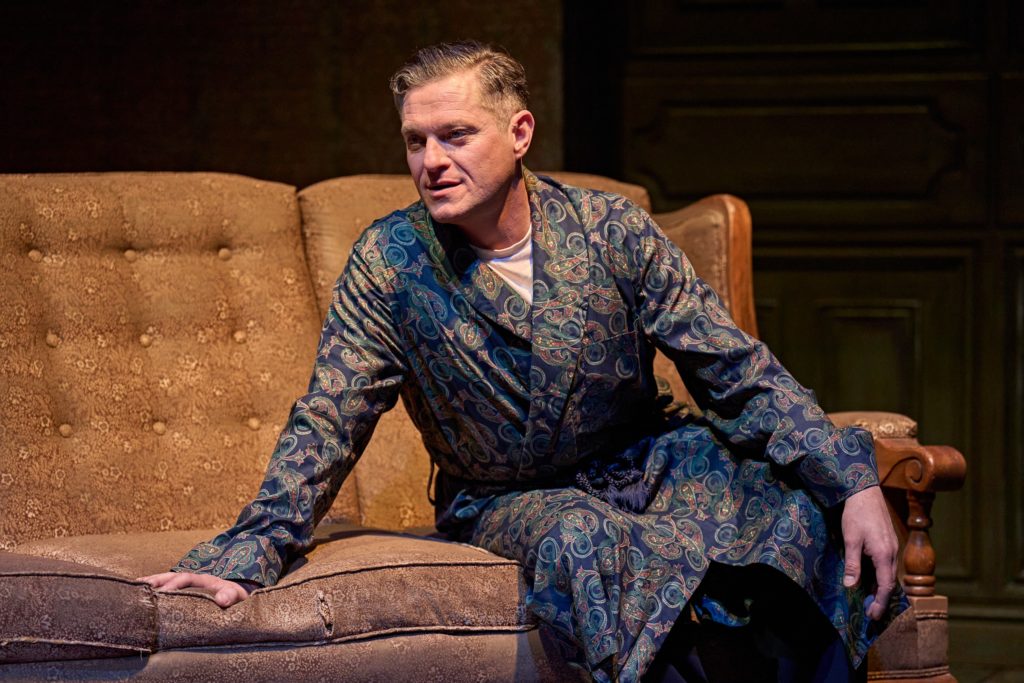
“I love your choice of words, your resolute refusal to explain anything, and the arrogant but triumphant demands you make on the audience’s imagination,” he enthused.
There you have it: the “resolute refusal to explain anything”. Over the years, that baton has been passed to the theatre critic, student and historian, and this particular critic has too often found his Pinter to be half empty, rather than half full, frustrating rather than fulfilling, a night to endure, more than enjoy.
Glover’s production, however, is a more rewarding encounter, the mystery, menacing comedy and muscular machismo language brought to the boil by a superb cast on a memorably distorted set design by Liz Ascroft.
Yes, you have to work hard; yes, you have to use your imagination, and yes, The Homecoming still carries its shock value, no longer the angry young man shock of the new; more, ‘did he just say that?’…’did she just do that’, but that is because the cast as one commits to Pinter’s “pause and effect” rhythm of language and its subsequent verbal punch.
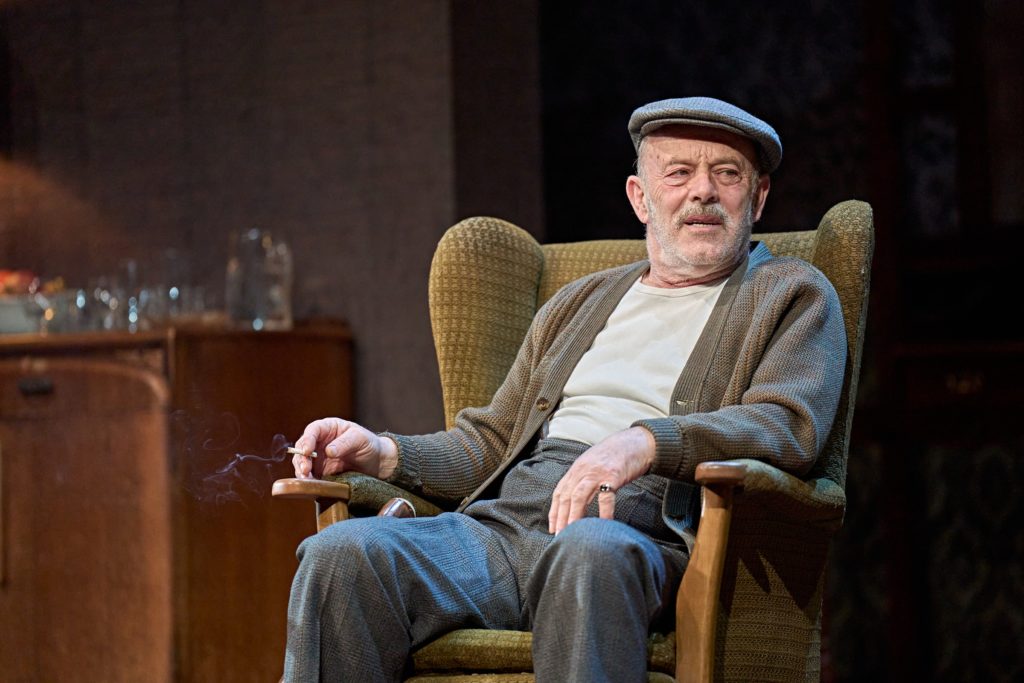
Having played Teddy in 1997 and Uncle Sam in 2015, Keith Allen graduates to patriarch Max, the retired butcher who still rules the North London family house with a simmering temper from his armchair, using his walking stick as much to threaten violence as to hobble around the living room.
Max, a cantankerous King Leer, sets the mood, switching without warning from vicious viper to florid sentimentality, belittling his brother, quietly resolute chauffeur Sam (Ian Bartholomew), and winding up his sons with his bragging.
The middle son, sarky pimp mobster Lenny (Mathew Horne), and youngest son, slow-headed, slow-footed aspiring boxer Joey (Geoffrey Lumb) have never left home despite Max’s derision. Like father, like son, all three are deluded, unhinged.
The one who did break away, eldest son Teddy (Sam Alexander), is a smug philosophy professor at an American university with educated airs and a cultivated voice. Without warning, he is paying a visit to show off his wife, mysterious, unpredictable, stultified former model Ruth (Shanaya Rafaat).
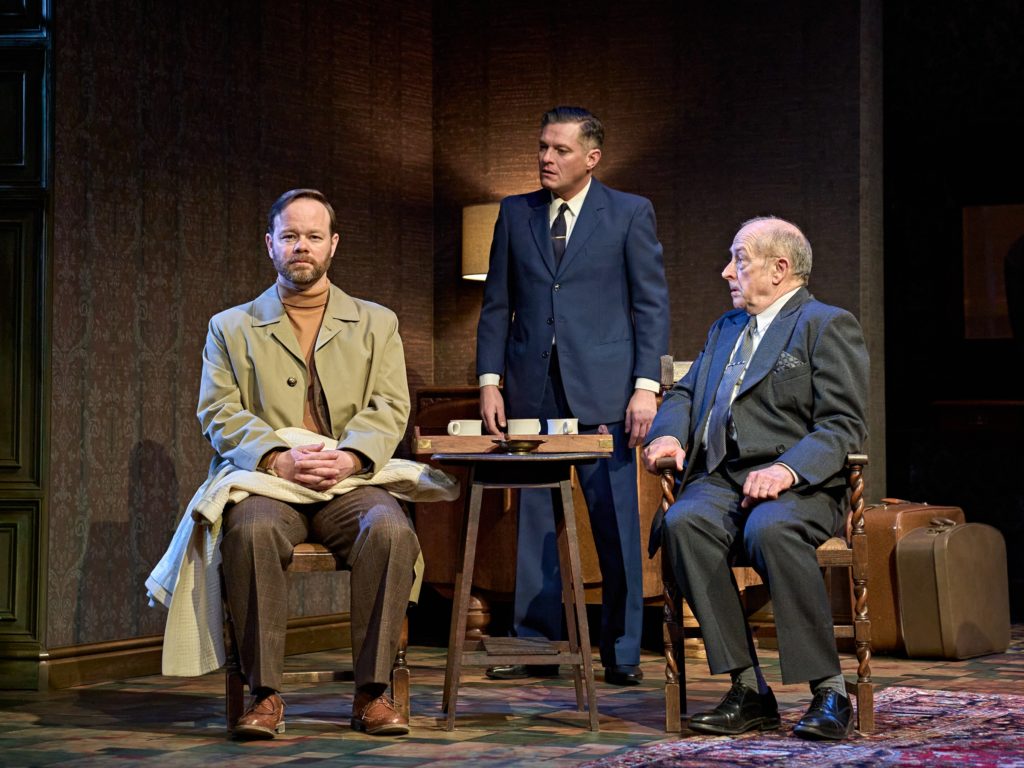
This is a change-resistant house devoid of female presence since Max’s wife died, and Ruth becomes a pawn in a power struggle of toxic masculinity. Or does she, because amid the appalling misogyny, in a world where all the men talk, but none of them listens in games of one-upmanship, she is the one who does exactly that and then makes her play, picking them off in turn, as she breaks free from smug Teddy’s condescending control.
It is said the word is all in a Pinter play, but here director Glover, designer Ascroft and lighting designer Johanna Town have a vital impact, at once physical and visual. Glover uses choreographed movement, a sudden change of posture, as the prelude to a mood switch; Ascroft has built a house interior that is worn, faded, stale, but is also stretched beyond reality with high walls and an endless staircase, bringing a sense of warped perspectives and being trapped.
Town’s lighting switches from drab domestic ordinariness to gothic shadows or flashes brightly on and off to reveal characters in different positions from before to indicate a juddering shift in the play’s tectonic plates.
Leave the pauses and disdainful social comments to the deconstructionist Pinter, and he leaves you to fill in the narrative gaps, to cling onto the coat tails of non-sequitur conversations and to make sense of it all…or not. He is playing with us, toying with us, ever the agent provocateur out of love with man’s foibles and failings, our idiocy and crassness. Is it funny? The joke is on us.

